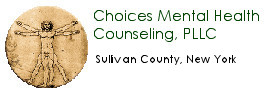Submitted by tomrue on
There are lots of good reasons to keep essential personal medical information on a secure website. Having health history available while traveling, in case of accident, illness, or natural or man-made disaster, are a few. Another is convenience. Here are a few links to secure websites that can help you keep track of your information.
Some doctors' office offer their own web-based services (example). Most don't yet, but several sites offer at least basic, and in some cases extensive, medical record-keeping services for free. Be sure to read the privacy policies first. These are a few that I've examined and recommend:Â
- bloodpressuretracker.com just bp readings
- drinet.com emergency medical info
- ihealthrecord.org online summary
- mednotice.com summary plus one free upload
- webhealthcentre.com online medical consultations
Of those that I've reviewed I've found ihealthrecord.com the most flexible. Empire Blue Cross/Blue Shield also has an excellent service, offered in partnership with WebMD, but it's unfortunately limited to members only. (Black tie optional.)
I predict that these services will grow and it won't be long before they're widely used. A suggestion that I'd offer hosts is to allow members a few megabytes space to store documents. Mednotice.com currently does, but the free offer is limited to one file. Another option is to use Yahoo! Briefcase or the like for digital document storage and another site for summary information. See this list of free online file storage sites.
Documents worth placing online, on a secure site (in password-protected files, if you wish) include a recent history and physical, recent labs, EKG, X-rays, medications, dental records, and family members' fingerprints. Consider the value, or at least the peace of mind, from having such information available in the event of a hurricane or other calamity.
Potentially life-saving EMR databases are available on the websites of many major insurance companies and medical facilities (see for example, Empire Blue Cross/Blue Shield). Permitting patients who travel to easily allow medical professionals at remote locations to access to their personal records, which are maintained and kept current and secure by their own trusted physicians at home, would be of even greater value and be a great marketing tool for growing healthcare practices.
Consider an interesting editorial by Dr. Tom Delbanco, professor at Harvard Medical School, discussing how HIPAA legislation mandates that patients have access to their medical records and how computer technology is beneficial. See "Sharing Everything We Write With Our Patients: Will Fully Transparent Electronic Medical Records Make or Break the Future?" in Medscape General Medicine 8(2) 2006, video webcast. There is mention on the website of Brigham and Women's Hospital of ongoing research projects relating to patient-accessible electronic medical records.
Taking the concept a step further to improve doctor-patient communication, see "E-mail as a Provider-Patient Electronic Communication Medium and Its Impact on the Electronic Health Record" (which could be made available as a billable option for interested consumers), on the website of the American Health Information Management Association.
It's my opinion that the benefits of remote password-protected access to my healthcare information, predicated on HIPAA-compliant informed consent, would easily outweigh potential risks, and provide yet another reason for residents of the mid-Hudson region to centralize all of their medical treatment at Crystal Run Healthcare.
If Americans are willing to conduct their personal and business banking and other sensitive transactions online when offered in a in a secure manner, and millions are, I believe you would receive a positive response from those patients who are Internet-inclined, particularly as the media begins to report on benefits to patients of having their health histories available wherever they may travel, and also backed up in a remote location in the event of a disaster. It's my opinion that the benefits of remote password-protected access to my healthcare information, predicated on HIPAA-compliant informed consent, would easily outweigh potential risks, and provide yet another reason for residents of the mid-Hudson region to centralize all of their medical care with one provider. If Americans are willing to conduct their personal and business banking and other sensitive transactions online when offered in a in a secure manner, and millions are, I believe you would receive a positive response from those patients who are Internet-inclined, particularly as the media begins to report on benefits to patients of having their health histories available wherever they may travel, and also backed up in a remote location in the event of a disaster.Â
ADDITIONAL LINKS
- FAQ: MyPHR.Com, A Guide to Understanding and Managing Your Personal Health Information.
- Forms: Prevention Charts: How To Keep Track of Your Health Care downloadable pdf files.
- Links: Personal Medical Records on the website of the National Institutes of Health, National Library of Medicine.
- Video Editorial: Sharing Everything We Write With Our Patients: Will Fully Transparent Electronic Medical Records Make or Break the Future? Tom Delbanco, MD, Professor at Harvard Medical School, reminds us that HIPAA legislation mandates that patients have access to their medical records and how computer technology is beneficial. Medscape General Medicine 8(2) 2006.
